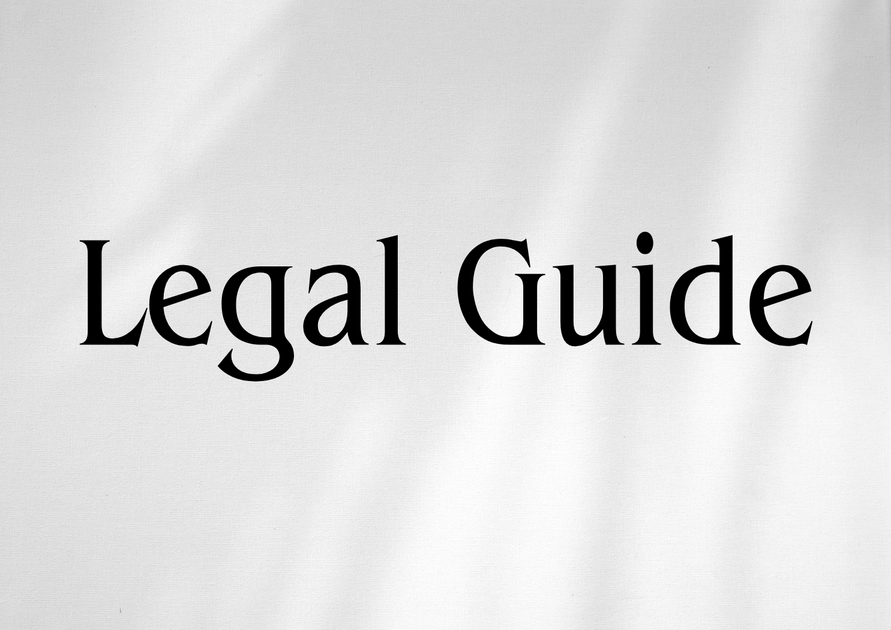Introduction
Dispute resolution in the UAE’s construction industry is entering a new era. Construction contracts, often complex and high-value, are increasingly governed by robust legal frameworks that prioritize efficient dispute management. With recent updates to UAE Federal Arbitration Law (Federal Law No. 6 of 2018) and the ongoing modernization aimed at 2025, understanding and drafting arbitration clauses has never been more consequential for stakeholders, from Emirati developers to international contractors and HR managers. This article delivers practical legal insights and best-practice guidance for implementing effective arbitration clauses under UAE law, reflecting the latest regulatory landscape and market realities.
Whether you are an executive assessing project risk, an in-house counsel negotiating EPC agreements, or an HR manager overseeing contract compliance, this analysis will equip you with the knowledge to ensure enforceability, minimize disputes, and future-proof your organization against costly legal missteps.
Table of Contents
- Legal Framework for Arbitration in UAE Construction Contracts
- Core Elements of Arbitration Clauses: UAE Law 2025 Updates
- Arbitration vs. Litigation: Strategic Considerations for Construction Entities
- Drafting Enforceable Arbitration Clauses: Common Pitfalls and Solutions
- Recent Legislative Developments Impacting Arbitration Clauses
- Compliance, Risks, and Remedies
- Case Studies and Hypotheticals: Arbitration Clauses in Action
- Compliance Checklist and Best Practice Recommendations
- Conclusion: Future Trends, Compliance, and Proactive Strategies
Legal Framework for Arbitration in UAE Construction Contracts
Federal Arbitration Law: Primary Reference for Construction Disputes
The cornerstone of arbitration in the United Arab Emirates is Federal Law No. 6 of 2018 on Arbitration. Influenced by the UNCITRAL Model Law, it modernizes arbitration proceedings while respecting local legal traditions. Where construction contracts previously suffered from fragmented standards, this law delivers clarity, particularly when parties incorporate arbitration clauses. Key features include:
- Recognition and enforcement of arbitration agreements and awards (Articles 7–58).
- Freedom of contract in procedural matters, subject to public order (Article 2).
- Authority for arbitral tribunals to order interim measures (Article 21).
Public policy and mandatory provisions remain crucial. Parties cannot contract out of certain requirements, including those affecting enforceability (e.g., capacity, mandatory written form, subject-matter arbitrability per UAE Federal Law).
Special Regimes: DIFC and ADGM Arbitration Laws
Dubai International Financial Centre (DIFC) and Abu Dhabi Global Market (ADGM) operate under their own arbitration regulations, offering opt-in regimes and global standards attractive to international contractors. Familiarity with these regimes is critical, particularly where a construction project spans onshore and free zone jurisdictions.
| Regime | Main Law | Language | Key Features |
|---|---|---|---|
| UAE Onshore | Federal Law No. 6 of 2018 | Arabic | Broad application, court support for arbitration |
| DIFC | DIFC Arbitration Law No. 1 of 2008 | English | International standards, recognition of foreign awards |
| ADGM | ADGM Arbitration Regulations 2015 | English | UNCITRAL-based, robust party autonomy |
Why Arbitration Matters: Commercial and Legal Drivers
- Confidentiality: Sensitive financial and technical issues remain private.
- Speed: Arbitration is typically faster than litigation, a crucial factor in high-value infrastructure projects where delays can be costly.
- Enforceability: UAE courts generally support the enforcement of local and foreign arbitral awards, particularly following UAE’s accession to the 1958 New York Convention.
Core Elements of Arbitration Clauses: UAE Law 2025 Updates
Mandatory and Recommended Elements
Under the Federal Arbitration Law and recognized international best practice, a well-drafted arbitration clause in a construction contract must address:
- Scope of Arbitration: Specify which disputes are arbitrable. Avoid ambiguous wording that might spur jurisdictional contests.
- Seat of Arbitration: Identifies the legal jurisdiction governing the process, which determines critical procedural rules (lex arbitri). The Dubai Courts and Abu Dhabi Courts often act as the supporting judiciary for onshore arbitrations.
- Rules and Institutional Administration: Specify the institution (e.g., Dubai International Arbitration Centre (DIAC), ICC, LCIA) and the applicable rules. The recent consolidation of Dubai arbitration centers makes naming the institution accurately essential. Tip: Use the full, official name of the selected institution.
- Number and Appointment of Arbitrators: State whether one or three arbitrators are to be appointed, and the process for nomination. For complex, high-value disputes it is typical to stipulate a panel of three.
- Language: Particularly important for cross-border contracts. Clearly specify (e.g., English or Arabic) to avoid later contestation.
- Governing Law: Clarify the applicable substantive law (often UAE law) to minimize uncertainty.
Notably, Article 7 of the Federal Law requires arbitration agreements to be in writing—failure here renders the clause unenforceable.
Optional Enhancements: 2025 Compliance Focus
- Interim Measures and Emergency Arbitration: UAE law now explicitly recognizes tribunal authority to order interim relief (Article 21 and 21bis, as amended). Consider including express rights to seek emergency orders, especially for payment claims or site access.
- Waiver of Sovereign Immunity: For contracts with semi-governmental entities, include explicit waivers; otherwise, enforcement may be frustrated by state immunity claims.
- Multi-tier Dispute Resolution Clauses: Combine negotiation, mediation, and arbitration for efficient dispute escalation. Clearly structure the timeframes and procedures.
Sample Arbitration Clause (Indicative, Not Legal Advice)
“Any dispute, controversy, or claim arising out of or relating to this contract, including its validity, interpretation, performance, or termination, shall be finally settled by arbitration administered by the Dubai International Arbitration Centre (DIAC) under its Arbitration Rules in force at the time of the submission of the request for arbitration. The seat of arbitration shall be Dubai, United Arab Emirates. The language of the proceedings shall be English. The tribunal shall consist of three arbitrators. The substantive law governing the contract shall be the law of the United Arab Emirates.”
Arbitration vs. Litigation: Strategic Considerations for Construction Entities
While UAE courts are increasingly specialist, arbitration often remains the preferred path for major construction disputes due to its commercial benefits. Understanding these differences is essential for procurement and legal departments drafting construction agreements.
| Factor | Arbitration | Litigation |
|---|---|---|
| Confidentiality | Proceedings and awards are private | Court hearings and judgments are public |
| Choice of Decision Maker | Parties appoint technical experts as arbitrators | Judges may lack sector expertise |
| Speed and Cost | Generally faster, but can be costly | Possibility of appeals, longer timelines |
| Enforceability | Global enforcement under New York Convention | Limited enforcement outside UAE |
When to Prefer Arbitration
- High-value, technically complex disputes (e.g. EPC, FIDIC-based contracts)
- Cross-border projects or where international enforceability is paramount
- Contracts with sensitive commercial information
When Litigation May Be Preferable
- Urgent site possession/mortgage/EPC disputes requiring interim court orders
- Where fast-track local remedies are built into statutory frameworks
Drafting Enforceable Arbitration Clauses: Common Pitfalls and Solutions
Top Pitfalls in UAE Construction Arbitration Clauses
- Ambiguity: Vague references to arbitration (e.g., “disputes may be settled by arbitration if the parties so agree”) undermine enforceability. The UAE courts will not enforce such clauses unless intention is clear and unambiguous. Tip: Use unequivocal, mandatory language.
- Omission of Key Details: Not naming the institution, rules, or seat can lead to parallel proceedings or judicial intervention.
- Unintended Inconsistency: Contradictory provisions (for instance, selecting onshore arbitration rules but naming a free zone seat) can cause delays and unenforceable awards.
- Non-compliance with UAE Law Form Requirements: Oral or unsigned clauses will not withstand court scrutiny. Digital signatures are expressly recognized under certain conditions (per Law No. 5 of 2021 on Electronic Transactions).
Best Practices for Construction Contracts
- Obtain legal review at the contract negotiation stage, especially for large EPC or FIDIC contracts.
- Customize the arbitration clause considering project-specific factors, not simply copy-paste from standard forms.
- Synchronize the arbitration provision with other clauses (force majeure, variations, governing law, etc.).
- Update precedent clauses in line with the latest Federal Law No. 6 of 2018 amendments and case law as of 2025.
Recent Legislative Developments Impacting Arbitration Clauses
Key Legal Updates: 2022–2025
Staying ahead of new legislative changes is critical for legal compliance. Recent updates most relevant to construction contracts include:
- Federal Law No. 15 of 2023 Amending Federal Law No. 6 of 2018: Expanded powers for arbitral tribunals to grant interim relief; simplification of enforcement processes; further recognition of digital evidence and electronic hearings.
- Consolidation of Dubai Arbitration Centres (Decree No. 34 of 2021): DIAC now assumes the lead as the principal arbitration center for Dubai, absorbing the Emirates Maritime Arbitration Centre and DIFC-LCIA Arbitration Centre. Parties must update contract wording to reflect the current recognized institutions.
- Enhanced Recognition of Digital Arbitration: The UAE courts now routinely accept electronic submissions and digital arbitral awards, as confirmed by Ministry of Justice Circular No. 2 of 2024.
| Element | Pre-2018 Requirement | 2025 Update |
|---|---|---|
| Formality | Written; oral agreements often disputed | Written, signed, or verifiable digital form recognized |
| Selection of Seat/Rules | Often vague or outdated standard forms | Express naming of seat/institution critical post-Decree 34 of 2021 |
| Interim Measures | Unclear tribunal powers | Codified tribunal authority to order urgent relief |
| Sovereign Immunity | Often silent | Now advisable to include explicit waiver |
Compliance, Risks, and Remedies
Risks of Non-Compliance
- Unenforceability: Poorly drafted clauses risk being set aside by the supervisory courts, especially if formality requirements or public order considerations are not met (Article 53, Federal Law No. 6 of 2018).
- Parallel Proceedings: Ambiguous or incomplete arbitration clauses may lead to dual litigation—wasting time and resources.
- Delay and Project Disruption: Dispute delays can cause site stoppages, payment impasses, and, in the worst cases, contract terminations.
- Cost Overruns: Unresolved disputes accumulate interest, legal fees, and loss of reputation in the marketplace.
Remedies and Mitigation Strategies
- Audit all construction contract templates for compliance with Federal Law No. 6 of 2018 and its amendments.
- Ensure up-to-date arbitration clauses referencing appropriate institutions and dispute types.
- Maintain detailed contractual records, including digital or electronic correspondence, to prove the parties’ intent.
- Establish a clear company dispute resolution policy and train commercial teams accordingly.
Case Studies and Hypotheticals: Arbitration Clauses in Action
Case Study 1: Enforceability of Institutional Arbitration Clauses
Scenario: An Emirati developer and an international contractor sign a multimillion-dirham FIDIC-based contract, referencing “arbitration under DIAC rules.” Disputes arise, but the clause omits the seat of arbitration and number of arbitrators.
Legal Analysis: Under Federal Law No. 6 of 2018 and Decree 34 of 2021, failure to specify the seat can lead to judicial intervention and delay. The Dubai Courts fill the gaps, but ambiguity can undermine confidence and prolong proceedings. Absolute clarity in the clause avoids such risks.
Case Study 2: Sovereign Immunity in Government-Linked Projects
Scenario: A foreign subcontractor contracts with a UAE government entity. The arbitration clause is silent on sovereign immunity. On enforcement, the government entity invokes immunity to resist an adverse award.
Legal Insight: Explicit waivers of immunity—both from jurisdiction and enforcement—are best practice and are now strongly advised for all construction contracts involving state entities following recent high-profile cases. Clauses must be worded per UAE law and international standards.
Hypothetical: Digital Arbitration, E-Signatures and Remote Hearings
As of 2025, a consortium executes a major infrastructure project using remotely negotiated contracts with e-signed arbitration clauses. A dispute is submitted and the entire arbitral process is conducted online.
Legal Insight: Digital arbitration processes are now widely recognized and supported by UAE courts, provided all signatures and records are verifiable per the UAE Electronic Transactions Law No. 5 of 2021. Parties should ensure platforms and digital processes are compliant.
Compliance Checklist and Best Practice Recommendations
Recommended Compliance Checklist for Arbitration Clauses in Construction Contracts
| Requirement | Status |
|---|---|
| Clear reference to arbitration as mandatory dispute resolution method | ✓ |
| Named arbitral institution and applicable rules | ✓ |
| Seat of arbitration explicitly stated | ✓ |
| Number and appointment process for arbitrators | ✓ |
| Language and governing law specified | ✓ |
| Signatures in compliance with UAE law, including digital options | ✓ |
| Explicit sovereign immunity waiver (if required) | ✓ |
| Updated for latest legal amendments and institutional changes | ✓ |
Conclusion: Future Trends, Compliance, and Proactive Strategies
Arbitration will continue to be the premier method for resolving construction disputes in the UAE. As the legal landscape evolves towards 2025, parties must prioritize robust, clear, and up-to-date arbitration clauses to safeguard project success and legal certainty. The expansion of digital arbitration, enhanced court support, and further legislative upgrades will likely streamline enforcement and increase cross-border recognition of UAE awards.
Organizations are advised to:
- Undertake periodic reviews of standard contract documentation for legal compliance.
- Regularly train in-house legal and HR teams on latest legal and procedural requirements.
- Engage specialist legal consultants for complex or high-value projects.
- Monitor new legal updates through official sources (e.g., Federal Legal Gazette, UAE Ministry of Justice).
By embedding these practices, construction sector participants can proactively avoid disputes, enforce their contractual rights, and remain at the cutting edge of compliance in the UAE’s dynamic legal environment.
For tailored advice on drafting or reviewing arbitration clauses in your construction contracts, contact our experienced UAE legal consultants for a confidential consultation.




